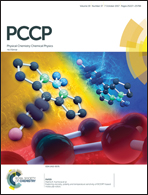Be positive: optimizing pramlintide from microcanonical analysis of amylin isoforms
Abstract
Amylin, or human islet amyloid polypeptide (hIAPP), is a 37-residue hormone synergistic to insulin and co-secreted with it by β-cells in the pancreas. The deposition of its cytotoxic amyloid fibrils is strongly related to the progression of Type II diabetes (T2D) and islet graft failures. Notably, isoforms from some mammalian species, such as rats (rIAPP) and porcine (pIAPP), present a few key mutations preventing aggregation. This has lead to biotechnological development of drugs for adjunct therapies of T2D, such as pramlintide, a variant of hIAPP inspired by rIAPP whose proline substitutions have β-strand fibril-breaking properties. Ideally, such a drug should be formulated with insulin and co-administered, but this has been prevented by a poor solubility profile at the appropriate pH. Hopefully, this could be improved with appropriate point mutations, increasing the molecular net charge. Despite experimental progress, preliminary screening during rational drug design can greatly benefit from thermodynamic insight derived from molecular simulations. So we introduce microcanonical thermostatistics analysis of multicanonical (MUCA) simulations of wild-type amylin isoforms as a systematic assessment of protein thermostability. As a consequence of this comprehensive investigation, the most suitable single-point mutations able to optimize pramlintide are located among the wild-type amylin isoforms. In particular, we find that aggregation inhibition and increased solubility are inherited by pramlintide through further S20R substitution typical of pIAPP. Thus, we provide a consistent thermostatistical methodology to aid the design of improved adjunct therapies for T2D according to current clinical knowledge.



 Please wait while we load your content...
Please wait while we load your content...